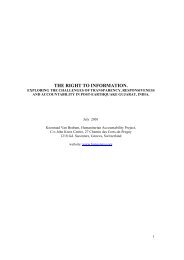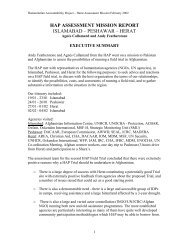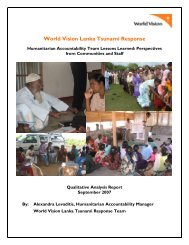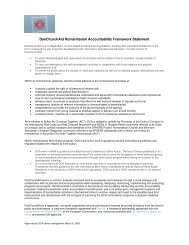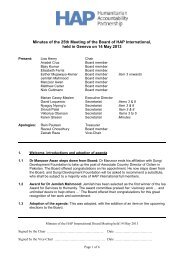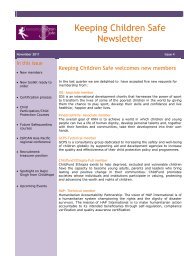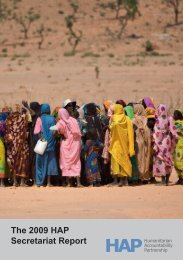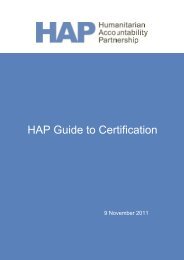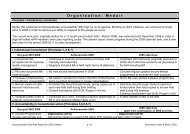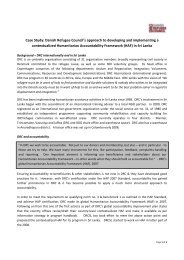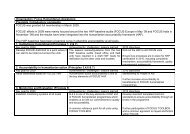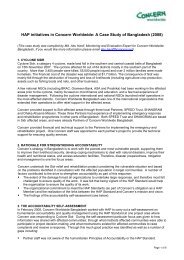Chapter Four - HAP International
Chapter Four - HAP International
Chapter Four - HAP International
Create successful ePaper yourself
Turn your PDF publications into a flip-book with our unique Google optimized e-Paper software.
THE 2008 HUMANITARIAN ACCOUNTABILITY REPORT<br />
13. MERCY Malaysia<br />
Introductory comments: MERCY Malaysia is a non-profit organisation established in 1999 to provide medical relief and sustainable health related<br />
development for vulnerable communities. It officially changed its registered name from Malaysian Medical Relief Society to MERCY Malaysia effective from<br />
4 November 2008, together with a new logo and a new address for its head office in Kuala Lumpur, Malaysia.<br />
The organisation is a member of the <strong>International</strong> Council of Voluntary Agencies (ICVA) and the Asian Disaster Reduction & Response Network (ADRRN).<br />
It is an NGO with Special Consultative Status with the United Nations Economic and Social Council (ECOSOC) and is an implementing partner with UNFPA<br />
and UNHCR.<br />
Realising the importance of disaster preparedness and risk management in addressing the climate change challenges, the organisation officially set up a<br />
Disaster Risk Reduction (DRR) Department in the early 2008 as part of its main humanitarian activities.<br />
During the year, MERCY Malaysia provided humanitarian assistance in Afghanistan, Bangladesh, Cambodia, China, India, Indonesia, India, Malaysia,<br />
Myanmar, Sudan and Yemen.<br />
Key goal for 2008 Achievements / challenges / lessons learned 2009 objectives<br />
1. A humanitarian quality management system (Principles 1, 2, 5 & 7)<br />
To continue developing the remaining key<br />
policies and procedures identified in 2007/2008<br />
HQMS workplan, covering all departments in<br />
the Organisations (with exception of DRR<br />
department).<br />
• The Constitution and HAF were reviewed during<br />
the year to accommodate recent developments in<br />
the Organisation, including the inclusion of<br />
Principles of Partnerships as an additional<br />
commitment in HAF.<br />
• Lack of dedicated human resource to be involved<br />
in documenting policies and procedures remained<br />
as one of the main challenge.<br />
• Delay in full implementation also contributed to new<br />
key staff having to spend a substantial time to be<br />
updated with relevant institutional knowledge<br />
already existed within the organisation.<br />
To bring the development of HQMS back on<br />
track.<br />
2. Information, Communication, Transparency (Principle 3)<br />
Internal advocacy to promote understanding<br />
within the organisation, through information<br />
sharing and trainings, leading to better<br />
implementation of Principle 3 in the field.<br />
• Completed a workshop with professional<br />
consultants to finalise the revision of stakeholders’<br />
engagement matrix, which will be streamlined into<br />
operational activities.<br />
• Develop a communication strategy (based on<br />
stakeholders’ engagement matrix) to deliver<br />
on wider and effective information sharing<br />
across different stakeholders.<br />
96<br />
121




